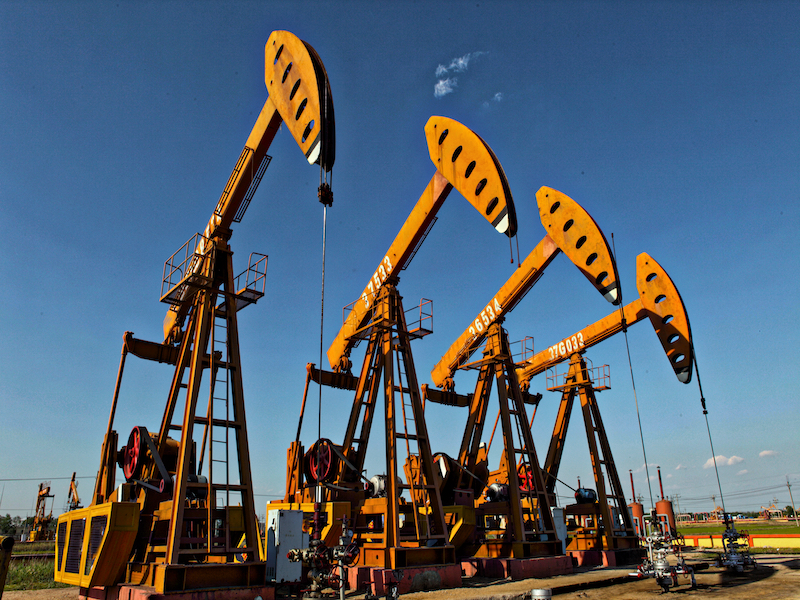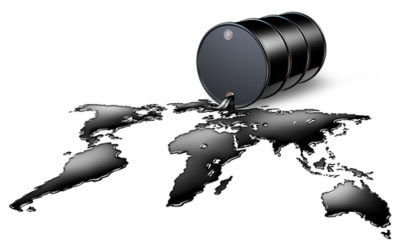Commodities
Giant Oil Entities Forfeit 2.5 Billion Dollars

It seems that the Alaskan Wilderness has defeated Big Oil’s attempts to tap its oil potential. Big players ConocoPhilips and Royal Dutch Shell Plc have recently opted to release the majority of their claims in the Chukchi Sea. They are far from the only companies to be doing so.
Oil Companies were hopeful that drilling in the Chukchi Sea would be profitable
They were, in fact, so convinced it would prove beneficial that they took out many leases on the rights to drill for oil and natural gas. Unfortunately, that profit has yet to materialize, and the attempt has led to significant losses for Shell in particular.
The leases of the Chukchi Sea cost an estimated $2.6 billion dollars. Worse, the companies just gave up nearly 80% of those leases, effectively eating the leases’ costs. Clearly, big oil is on its way out of the Arctic, possibly for good.
The question is, why?
Oil costs are down almost as far as they were in the 1990’s
[seabridge]
With the price of crude oil so low, money is, to say the least, tight for the oil companies. One of the places they can afford to cut costs is in exploration. They are now doing so by giving up their Alaskan leases.
Drilling in the Chukchi Sea has already proven costly for Shell.
In 2015, Shell spent $7 billion dollars over the course of seven years only to turn up a dry well in Alaska. With the market being what it is, they cannot afford more such failed explorations. This is another likely reason why they are pulling out.
Drilling in the Chukchi Sea involves strict regulations
Royal Dutch Shell is required to have equipment that can shut down their well if spills happen, thus preventing another disaster similar to BP’s. This equipment must be functional before the reserves are tapped. Therefore, it is another added exploration expense to take into consideration.
Drilling also poses a danger to walrus habitats. To mitigate this issue, regulations require that a minimum distance of 15 miles must be maintained between drilling sites. This effectively limits the usable area to be explored.
Worse, these oil regulations continue to evolve. Richard Ranger of the American Petroleum Institute believes that uncertain future regulations are one factor that turns oil companies away from the Arctic as a source of oil.
The environment itself is not conducive to drilling
Then, of course, there is the weather in the Arctic. The area is prone to extremely low temperatures and volatile storms. Ice forms in the sea itself, complicating potential oil spills. Additionally, there are icebergs, which pose a serious threat to drilling machinery.
All in all, Big Oil seems to think that drilling in Alaska is dangerous, too heavily regulated, and too expensive to be supported by the current price of oil.
Some companies that are abandoning leases in the Arctic
- ConocoPhillips released 61 Chukchi Sea leases.
- Statoil relinquished 16 Chukchi Sea leases, indicating that they were no longer worth keeping from a business standpoint.
- Iona Energy, Inc. gave up its single lease in the Chukchi Sea.
- Italy’s Eni Spa released four leases in the Chukchi Sea.
- Shell gave up a staggering 274 Chukchi Sea leases. It kept the parcel that it spent $7 billion drilling, however. It can then keep valuable information about the site private from the government for a few more years.
Speaking of government, the Federal Government is not planning on auctioning new leases for years, if it ever does so again.
It is not merely that is there is currently extremely low interest in future leases on the oil companies’ parts. The Obama administration is also under pressure from environmental activists to never lease Chukchi Sea rights to drillers again.
Oceana’s Michael LeVine feels that the mere fact that Big Oil gave up the leases to begin with shows that there’s no reason to bother leasing them again. Cindy Shogan of the Alaska Wilderness League concurs and hopes Obama is convinced to never schedule new leases.
Representative Jared Huffman (D-CA) wants to see the oil stay in the ground where he feels it belongs. He believes that further drilling only contributes to global warming as the oil is processed and used for fuel. He states that leaving the oil alone would be more in line with our commitment to climate change efforts than mining it.
What is good news for the environment may be bad news for Alaska’s economy
Alaska Governor Bill Walker expresses disappointment with Shell’s decision to drop their leases. He cites a $4 billion budget deficit and says that the Alaskan pipeline is three-quarters empty. He opines that finding more oil is imperative both to bringing revenue to Alaska and creating jobs.
However, whichever side of the issue you fall on, it appears that Big Oil is done with Alaska for the time being.















